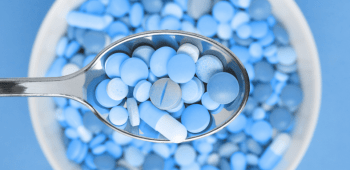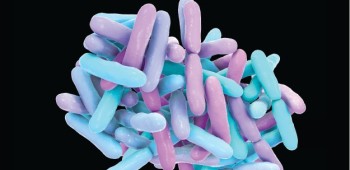Malnutrition: acting on the microbiota in order to improve growth, a trial prototype
A new study, published in The New England Journal of Medicine, showed that during a randomized clinical trial, a therapeutic food supplement created for restoring the gut microbiota of children suffering from malnutrition was better than the standard therapy for maintaining their growth.
Sources
This article is based on scientific information

About this article
Over 30 million children aged under 5 years suffer from (sidenote: Moderate Acute Malnutrition (MAM) Defined by the World Health Organization as a weight/height ratio two to three standard deviations lower than the median of the age cohort ) world-wide. The main characteristic of this global scourge is that these children have an immature gut microbiota (GM). During a (sidenote: Raman AS, Gehrig JL, Venkatesh S, et al. A sparse covarying unit that describes healthy and impaired human gut microbiota development. Science. 2019;365(6449):eaau4735. ) , the authors of this study defined a prototype food supplement (MDCF-2), which made it possible to restore the GM of children aged 12 to 18 months suffering from MAM. This new study aims to confirm the efficacy of MDCF-2 in children suffering from MAM in a larger study conducted over a longer period of time.
An interventional study conducted on 123 Bangladeshi children
In this randomized, controlled trial, 123 Bangladeshi children (12 to 18 months old) suffering from MAM received either MDCF-2 supplementation (204 kcal per daily dose of 50 g), or an existing ready-to-use supplementary food (RUSF, 247 kcal per daily dose of 50 g) twice a day for three months, followed by a one-month follow-up. At the same time, the team of researchers monitored weight, height, and arm circumference on a weekly basis, and also took blood and stool samples regularly.
Faster growth, more weight gain
Of the 118 children who completed the study (59 in each group), those in the MDCF-2 group had grown more rapidly than those in the RUSF group. For the children in the MDCF-2 group, the mean weekly variation in the weight-for-height index was 0.021, versus 0.010 in the RUSF group. As for weight-for-age, the mean weekly variation was 0.017 in the MDCF-2 group and 0.010 in the RUSF group. The variations in arm circumference and height-for-age index were similar in both groups.
Blood and intestinal biomarkers identified
After supplementation with MDCF-2, 714 proteins were significantly modified, versus 82 in the RUSF group. Although some of them were associated with musculoskeletal and nervous system development (p<0.001), 70 were also correlated with the weight-for-height index. On the other hand, proinflammatory markers, accentuated by malnutrition at the start of the study, were more largely reduced by MDCF-2 supplementation. With regard to the microbiota, MDCF-2 supplementation made it possible to significantly increase 21 bacterial taxa positively associated with the weight-for-height index (p<0.001) and inversely, to reduce two bacterial taxa (Escherichia coli and a species of Bifidobacterium) negatively associated with the weight-for-height index (p<0.001).
This study backs the following statement: adequate calorie and nutritional supply is insufficient for remedying the consequences of long-term malnutrition. According to the authors, optimal maturation of the GM is a priority. In order to evaluate the efficacy of this new therapeutic approach, larger studies are needed, which should be conducted in different geographical locations and in a broader pediatric age bracket.










